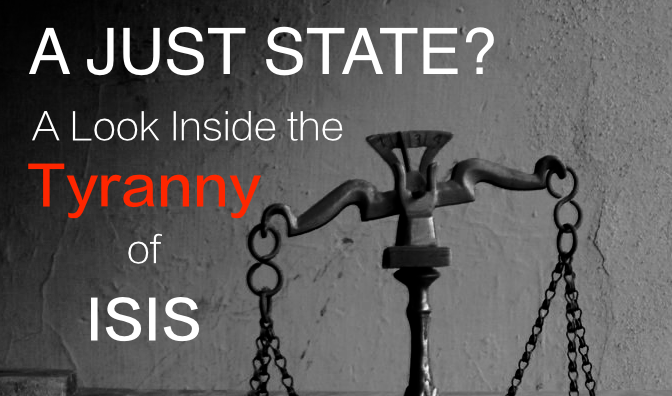Connock, A. (2022). Media Management and Artificial Intelligence Understanding Media Business Models in the Digital Age. Routledge. ISBN 9781032100944, 344 Pages 16 B/W Illustrations, Published November 18, 2022, by Routledge. The recently published book authored by Alex Connock scrutinizes contemporary media business models in the context of Artificial Intelligence (AI) and …
Read More »PODCAST | A Just State? A Look Inside the Tyranny of ISIS
Mara Revkin, PhD candidate in Political Science at Yale University, unveils the legal structure, recruitment, and media management of the infamous yet understudied so-called Islamic State (ISIS). As part of her research, she has conducted interviews with defectors and individuals who have escaped ISIS occupied territory. She has also interacted with active members. In the podcast, Revkin explains the legal structures of ISIS and why it is appealing to followers.
Read More »Media Privatization and the Fate of Social Democracy in Egypt
Nour Halabi asks why the social democratic aims of the January 2011 Revolution have not been advanced in the four years since. Halabi posits that private media ownership structures established during Mubarak's neoliberal economic reform initiative are largely to blame, arguing that despite the popular demands for social justice, the structure of Egyptian commercialized media inhibited the translation of social justice demands into discussions of economic policy.
Read More »Interview with Nigel Parsons, Managing Director of Al Jazeera International
The long-anticipated English-language Al Jazeera International (AJI) is due to launch in the second quarter of 2006. TBS’s new senior editor Lawrence Pintak talked with AJI’s managing director Nigel Parsons, to find out about the hopes riding on the new channel as well as the challenges facing it. TBS: Let’s start with some basics. Why are …
Read More »‘Citizen and Leader’: Evaluating the Impact of Campaign Advertising in Egypt’s 2005 Presidential Race
Egypt’s first-ever presidential campaign opened dramatically for the ruling National Democratic Party (NDP) with a speech by the president at the recently built Al Azhar Park. Designed and laid out by the Aga Khan foundation, the park perches majestically on the edge of the city on a former landfill, overlooking …
Read More »The Battle of the Airwaves: The Rise and Proliferation of Iranian Satellite TV Channels
Today, Iranian air space is electronically penetrated by numerous radio and TV satellite signals that originate from the US and other countries around the world. In fact, it is probably safe to state that no other nation in the world is targeted by over 20 satellite TV channels and dozens …
Read More »The BBC World Service Arabic TV: Revival of a Dream or Sudden Death by the Competition?
Discussions of the significance of transnational radio news networks and their impact on Arab audiences usually arrive sooner or later at the unprecedented popularity of the British Broadcasting Corporation’s (BBC) World Service Arabic Language service, the only news network to dominate ratings among Arab radio listeners. In fact, a new …
Read More »Public Diplomacy 101: A Required Course for Karen Hughes
In her assignment as the communication director of George W. Bush’s presidential and gubernatorial campaigns, Karen Hughes maintained straight-A grades. In her first trip to the Middle East as undersecretary for public diplomacy in September, however, Mrs. Hughes’ GPA seems to have dropped to a C or even less, according …
Read More »Eulogy to Rebirth? US International Broadcasting Struggles to Find its Way—With the Help of Al Jazeera
It was a brief ceremony for the deceased. The eulogy was given by US Secretary of State Madeline Albright, on a brilliant Washington, DC morning, October 1, 1999. The assembled were reminded by Secretary Albright that this was a time to rejoice, and not to mourn, because the accomplishments of …
Read More »‘The Perfect War’: US Public Diplomacy and International Broadcasting During Desert Shield and Desert Storm, 1990/1991
In this article, Nicholas Cull reviews the performance of the United States Information Agency (USIA) during the Gulf Crisis and War of 1990-91. He concludes by contrasting the effective US use of public diplomacy during this period with the problems encountered following 9/11.
Read More » Arab Media & Society The Arab Media Hub
Arab Media & Society The Arab Media Hub



